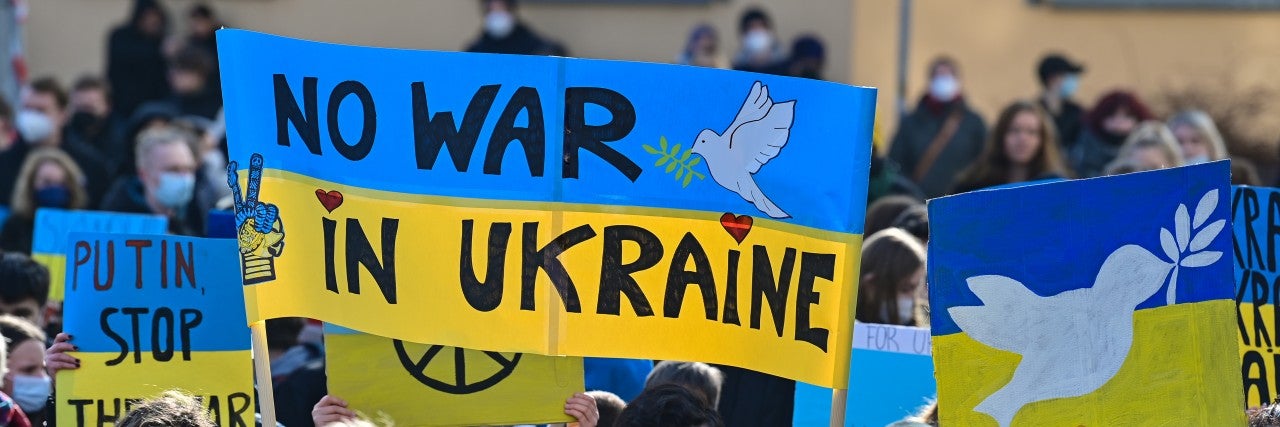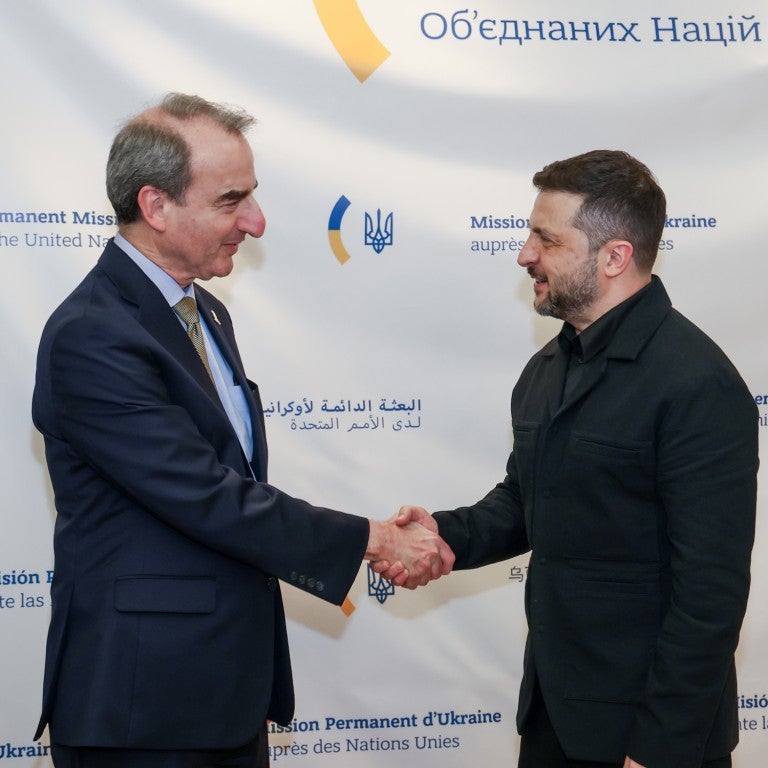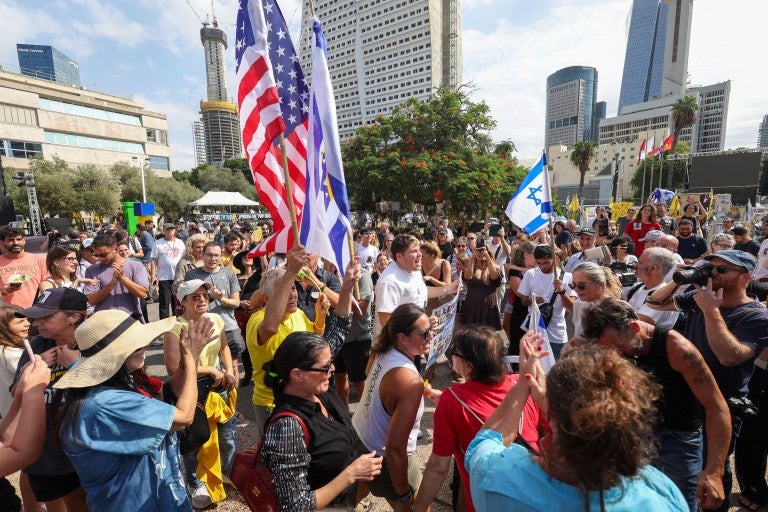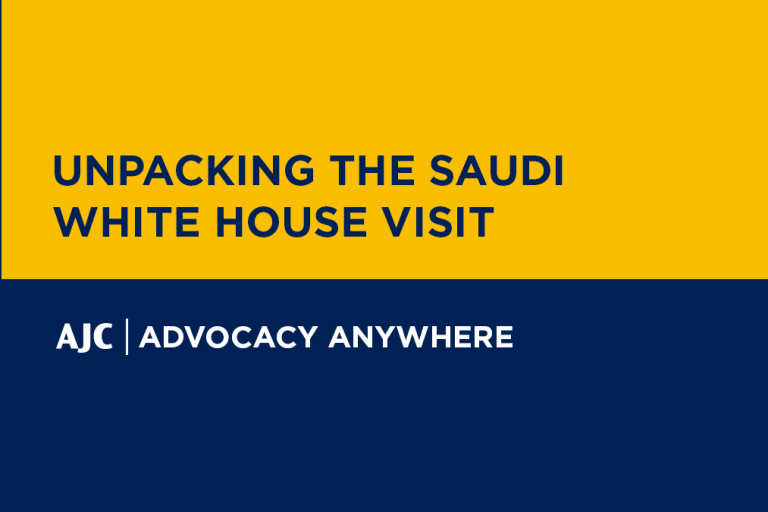March 31, 2022 — Paris
This piece first appeared in the French Jewish monthly Actualité Juive. Below is the English translation.
On February 24, Europeans who had been living in peace for 80 years suddenly realized that the history Francis Fukuyama had once called dead was unexpectedly returning. The tragedy of history was back on the European continent and would possibly change it forever.
In response, European governments decided to act swiftly. By issuing quick sanctions against Russia and expressing unwavering support to Ukrainian President Zelensky, Europe was more reactive and united than ever. Many Europeans also realized, probably a little late, that those who had long warned about Russian President Vladimir Putin’s true intentions, of Europe’s energy dependence on Russia, of Russian interference on their soil, had been right.
Mainly Central European countries, such as Poland and the Baltic states, had expressed concern about Putin in the past. Notably, Estonia, which in 2007 had experienced Russia’s hostile behavior, when Moscow organized a massive cyberattack on their country, was an experience that had prepared this small country for the worst. One also remembers the premonitory speech of the late Polish President Lech Kaczynski in 2008, during the Russian invasion of Georgia, when he spoke from Tbilisi square: “We know only too well that what hit Georgia today can hit Ukraine tomorrow, the Baltic States one day later, and then perhaps my own country as well.”
The reality is that Putin had been testing Europe's ability to defend the post-Cold War order all along. By using a myriad of hybrid instruments, Putin has been blurring the lines between war and non-war, between diplomacy and conflict, to impose a strategy of confusion and permanent tension on his adversaries. The annexation of Crimea, the assassination of Litvinenk, attacks on Sergei Skripal and Alexei Navalny, the hiring of former European heads of states in Russian state-owned companies, the propaganda of Russian media or the financing of populist political parties were steps that tested Europe’s resistance and more widely the free world. This muted war against Europe was waged in order to achieve Putin’s dream of a "post-Western" world, which Russian Foreign Minister Lavrov had already called for in 2014. A necessary "Finlandization" of the West in which Europe would be weakened, divided, incapable of imposing a firm sanctions policy on Russia when needed.
But Russia is not the only actor trying to exploit European weaknesses. In 2016, AJC Europe warned of other malign actors, including Turkish, Qatari, Saudi, Iranian and Chinese. The EU just banned the Russian propaganda tool RT (Russia Today) and Sputnik, realizing that this disinformation machine was becoming problematic for their democracies. But what about the anti-Zionist propaganda of AJ+ or Al Jazeera in Arabic? What about the interference of countries in European Islam by countries like Turkey or Iran ? These countries have been financing mosques or Islamist associations, promoting a radical, antisemitic, anti-European agenda for years. And what was Europe’s defense? Let’s just say it was inadequate.
Faced with the brutal reality of a war on the European continent, we are now witnessing a European awakening. To counteract foreign interference in our democracies, members of the European Parliament finally passed a resolution a few weeks ago against destabilization efforts by foreign powers. In the fields of defense, technology and energy, responses are being prepared. France, which has long advocated for a "strategic rearmament" and also "European sovereignty," could take the lead, working with its European and American partners rather than ignoring their concerns and pleas.
A return to oblivion should be impossible, and the next few months will be decisive. Europeans cannot afford to fall back to sleep, back into a sense of security, reassuring themselves that somehow Putin or even other actors will change. We are living in a more and more dangerous world and Europeans must realize this, whether they like it or not. The opportunity to strengthen strategic areas in the face of increasingly hostile and unpredictable actors is opening up for Europe.
Lastly, this transformation, if it is to be sustainable, must also be based on the idea that the fight against our adversaries must also include the defense of our core values as liberal democracies. This is also the meaning of the Wakeup call that Europe needs.
Simone Rodan-Benzaquen, Managing Director of AJC (American Jewish Committee)Europe, is co-founder of the Wake-up call (le Sursaut), an AJC initiative, European alliance committed to fighting Islamism, extremism and populism.






